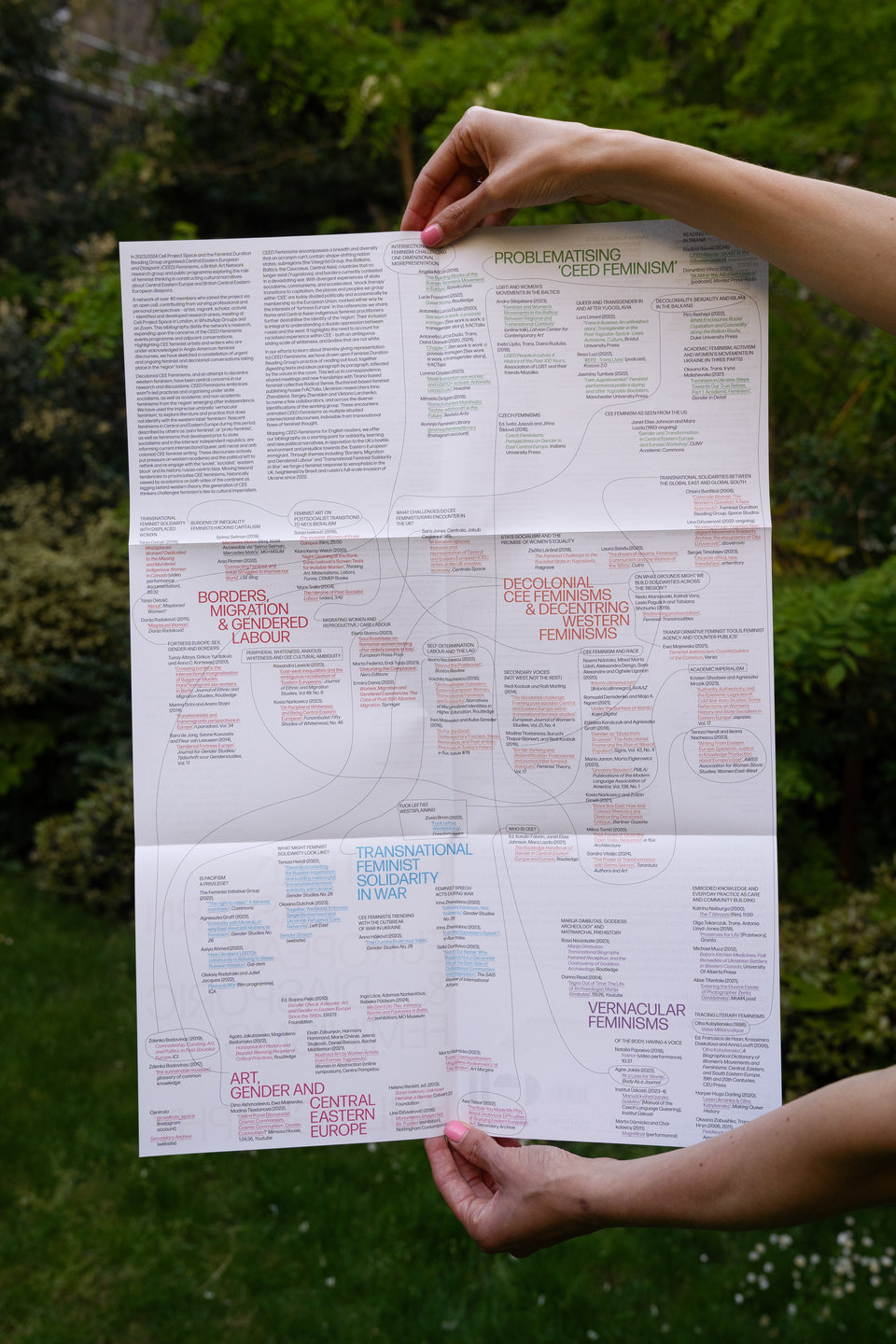CEED (Central Eastern European and Diasporic) Feminisms Bibliography
2024

Central Eastern European & Diasporic Feminisms Bibliography
ISBN: 978-1-9162154-3-6,
Designer Alessia Arcuri.
A2 Full colour, folded to 210mm x 198mm, Munken 80gsm
1st Edition 200
2nd Edition 200
2nd Edition 200
TO ACCESS AN INTERACTIVE COPY FOLLOW THE LINK HERE
Produced and edited by The CEED Feminisms Working Group; Bogdana Ababii, Holly Antrum, Laura Bivolaru, Diana Damian, Lina Dz̆uverović, Sabrina Fuller, Vanessa Giorgo, Markéta Hašková, Jessie Krish, Marta Marsicka, Adomas Narkevičius, Maja Ngom, Helena Reckitt, Marta Zboralska, and others who wish to remain uncredited.
This publication is available for in-person pick up at the gallery free of charge.
For postage and further inquiries please contact annabelle [at] cellprojects [dot] com.
The CEED (Central Eastern European and Diasporic) Feminisms Bibliography distils conversations and references offered by the CEED Feminisms research network, comprising over 40 practitioners based in and beyond the UK, who participated in a British Art Network supported programme after joining the project through an open call in May 2023. Mapping CEED Feminisms for English readers, the bibliography highlights CEE feminist artists and writers who are under-acknowledged in Anglo-American feminist discourses, expanding upon the concerns of the CEED Feminisms event programme and adjacent conversations. Read more about CEED Feminisms here.
Embracing wom*n-led practices and organising before and under state socialisms, as well as academic and non-academic feminisms from the 'region' emerging after independence, the bibliography sketches a constellation of urgent and ongoing feminist and decolonial conversations that decentre Western feminism. Its sprawling form and content questions the scope of 'CEED Feminisms', problematising 'Central Eastern Europe' as a container for enormous cultural diversity and contextualising feminist discourses bound to post/state socialism, anti/imperialism and de/colonialism.
Aiming to share and pass on the CEED Feminisms research network's conversations, the impetus for the bibliography responds to an asymmetry in the translation and circulation of feminist writing coming from Central Eastern Europe, or by writers in the diaspora, with many more feminist texts travelling West to East historically. Copies will be distributed to a number of libraries across the UK and in Central Eastern Europe.
